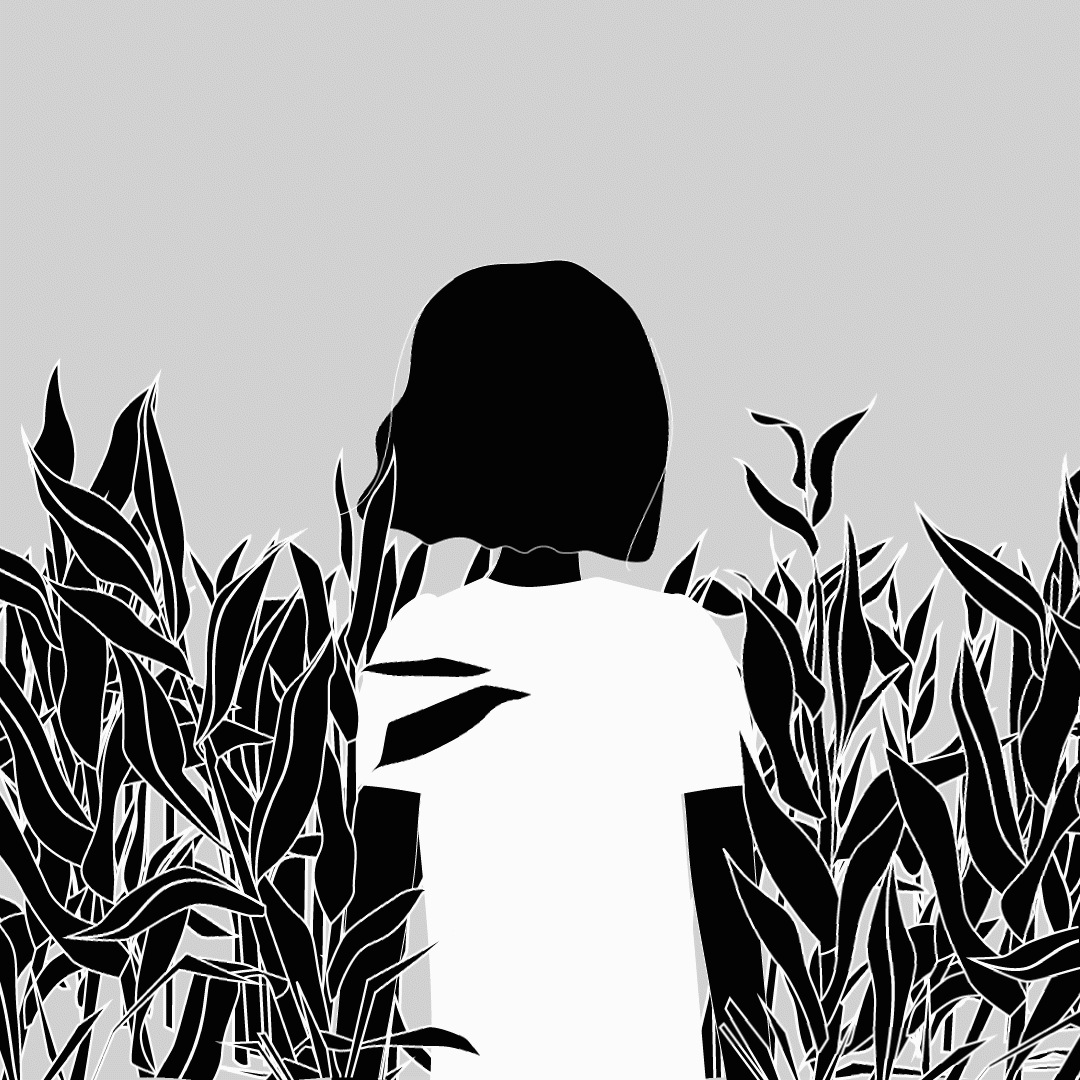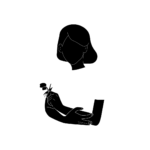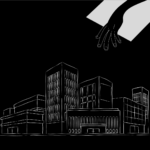A life of unpaid work
“I was the first child. The memories of my childhood are very vivid in my mind and I often think through them. We always worked the fields with my family, we would care for my dad and uncle’s cattle, all summer long. I would get praised for the way I would work, because I would do it right and not just to finish it. I know that sometimes I might have been considered as a number, an argate, a line planted with corn and beans.”

Ilustration: Argjira Kukaj
I was born in ’69, in a faraway mountain village. The beauty of my village has nothing to do with the quality of the lives of people who live there, but I mentioned this detail so I can begin talking. When I was born, there were no cars and even less busses. To this day the bus doesn’t pass through my village. It seems like it is hard to gather enough people at a certain time of the day. Maybe because my small village is hidden deep within the mountains.
I was the first child. The memories of my childhood are very vivid in my mind and I often think through them. We always worked the fields with my family, we would care for my dad and uncle’s cattle, all summer long. I would get praised for the way I would work, because I would do it right and not just to finish it. I know that sometimes I might have been considered as a number, an argate, a line planted with corn and beans.
There was so much work, I happened to go to school with dirty shoes, from ahur. I stopped going to school in 8th grade, even though I would study a lot and loved to read books. 15 other girls I had in my class did the same thing. I still keep contact with them, none of them continued their education, nor do they work, except for house work. Maybe some of them who married in Germany or other similar places, might have found jobs but I don’t know for all of them. I will explain why I didn’t continue school, maybe someone is interested to know why. We didn’t have a high school in our village, we had to go to the city, which would mean walking many kilometers. They didn’t allow girls to walk alone back then.
When I passed my 20s, they started to ask me for marriage. At the beginning I didn’t want to, my dad was abroad, my mom at home with my brothers and a younger sister. My dad was abroad until recently, working, trying to win something, but he never knew how to make us happy with the money he earned. After some years passed, I heard that me and another girl I went to school with, were the only ones unmarried in my village. I would often hear conversations like this, it seemed like the only purpose of a girl’s life is marriage. At some point, influenced slightly by my mom and a little bit by myself, I started considering marriage. I had made lots of my Pajë, everytime I would go to the city at my mom’s family, I would buy yarn to make embroideries, towels and pillows. I made most of them very colorful.
I was a girl soon to get married so I had to make my Pajë, because I couldn’t go to my husband without anything, but at home, we would most often eat bread with milk and yogurt. Today, most of my Pajë is somewhere in the attic, wrapped and folded in the best way, inside an old luggage that my husband bought many years ago for himself. My Pajë has been there for years, it is covered in dust, in the same way as me, stuck in a pond without flow. I knew very little about life when I got married. But I knew that I couldn’t stay at my mom’s for long, everyone would say that.
In my husband’s house, I would do house work all day but I never revolted against that. Ever so rarely I would say something, but only when I had had enough and I couldn’t not say something. If I voiced my thoughts more, if I fought without rest for my rights, maybe nowadays I too would have made something of myself. At my husband’s I would clean and wash, then I had kids. My husband would work all day and would return home at night. I spent the entire day with my children, with my mother-in-law and some cattle that needed someone to look after them. Sometimes I wanted to not be home like my husband, not have a single house work to do. No bread to bake, no dish to wash, no diaper to change. I shed tears as much as I could and I went through a lot. I would consider going to the place he worked, to see if there was a job for me too.
I too wanted to see how liberating it felt to have control of your life, for once in my life to do something that I liked, without asking anyone for permission or money. I know everything would have been very different if I had this opportunity, because I feel like I never carried the compass of my life. At my husband’s, I made some friends in the neighborhood, most of them my age. I don’t recall any of them working something that wasn’t their house work. May our daughters not have our luck. I motivated my daughter to be independent, to be her own woman, as much as I could. And now, because of her, this story will end slightly better. My daughter, knowing I hand knitted clothes my entire life, finished school but she kept me in her mind. Today, I am knitting hats and scarfs for winter and she is selling them to people who are interested. At least now, in old age, I am learning what it means to have a free spirit and your own money. Seeing my daughter like this is longing my life. I friend, removed myself from the iron bubble where I had spent all my youth. Whereas I taught my daughter to never live in a bubble. I taught her to be an Argate of herself.
Note: This article is a personal confession about the unemployment of a woman from a rural area, and it has been presented as so to preserve the originality of her confession.
About the author: Florida Kastrati is finishing her master studies in English Literature in the University of Prishtina.
This grant is supported by the Balkan Trust for Democracy, a project of the German Marshall Fund of the United States


